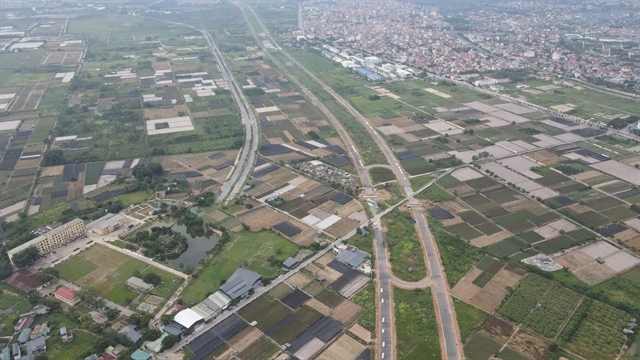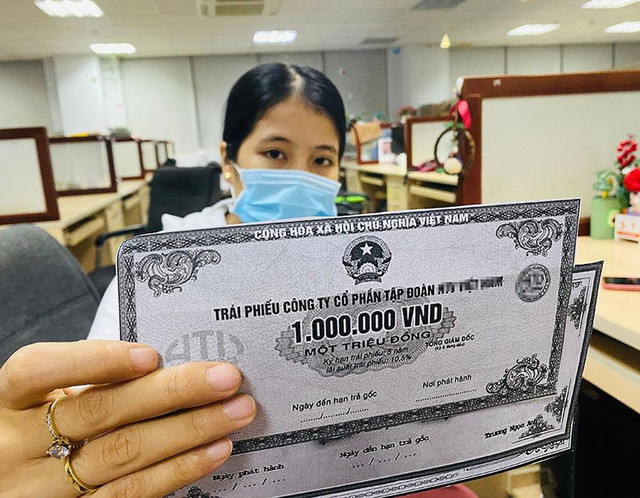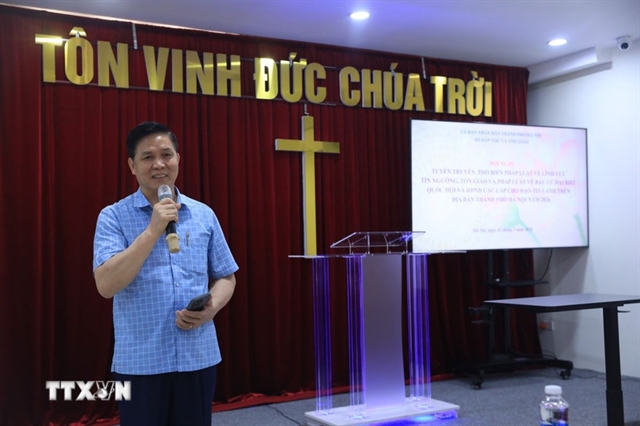 Politics & Law
Politics & Law
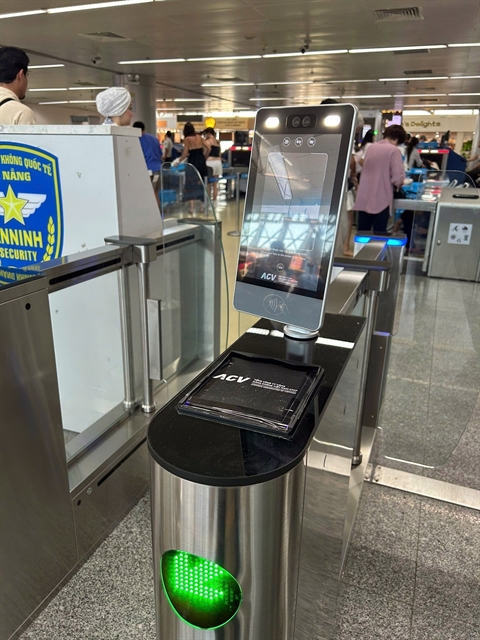
Việt Nam ranks 107th among 180 countries and territories in the Corruption Perceptions Index (CPI) 2017 released by Transparency International on February 22, a slight improvement from the two previous years.
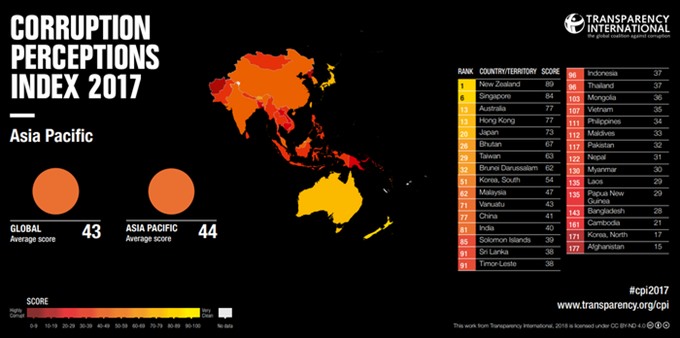 |
| Infographic by Transparency International |
HÀ NỘI — Việt Nam ranks 107th among 180 countries and territories in the Corruption Perceptions Index (CPI) 2017 released by Transparency International on Thursday, a slight improvement from the two previous years.
The country scored of 35 points out of 100 on the CPI 2017. The country scored 31 in 2015 and 33 in 2016.
The index ranks the 180 countries and territories by their perceived levels of public sector corruption according to experts and businesspeople. It uses a scale of zero to 100, where zero is highly corrupt and 100 is very clean.
According to Towards Transparency (TT), the national contact of Transparency International in Việt Nam, the slight increase of the country’s CPI score for two consecutive years is a positive sign for its anti-corruption efforts.
However, the score does indicate that corruption in Việt Nam’s public sector is still perceived as highly serious.
TT said in 2017, with the renewed commitments of the Party and the State, national anti-corruption efforts have attained some positive results, including the adjudication of serious corruption cases involving several high-level public officials. At the same time, Việt Nam has continued to improve its anti-corruption legal framework, such as the revision of the existing Law on Anti-corruption in line with international standards.
TT asked the country to take further measures and develop effective, accountable and inclusive institutions. It recommended Việt Nam improve the effectiveness of the National Assembly’s overseeing role and the independence in adjudication by the judiciary, enhance anti-corruption efforts in areas where citizens regularly encounter corruption and bribery (police, public health, and public education) and improve the legal framework on whistleblower protection to stimulate social participation in anti-corruption.
Meanwhile, businesses should take initiatives in fighting against corruption and building business integrity. They should also strengthen internal anti-corruption capacities.
Media, civil society organisations and citizens should engage in anti-corruption efforts by promoting transparency, integrity and accountability, while exercising the right to access information and taking part in monitoring the implementation of the 2016 Law on Access to Information, according to TT. — VNS

